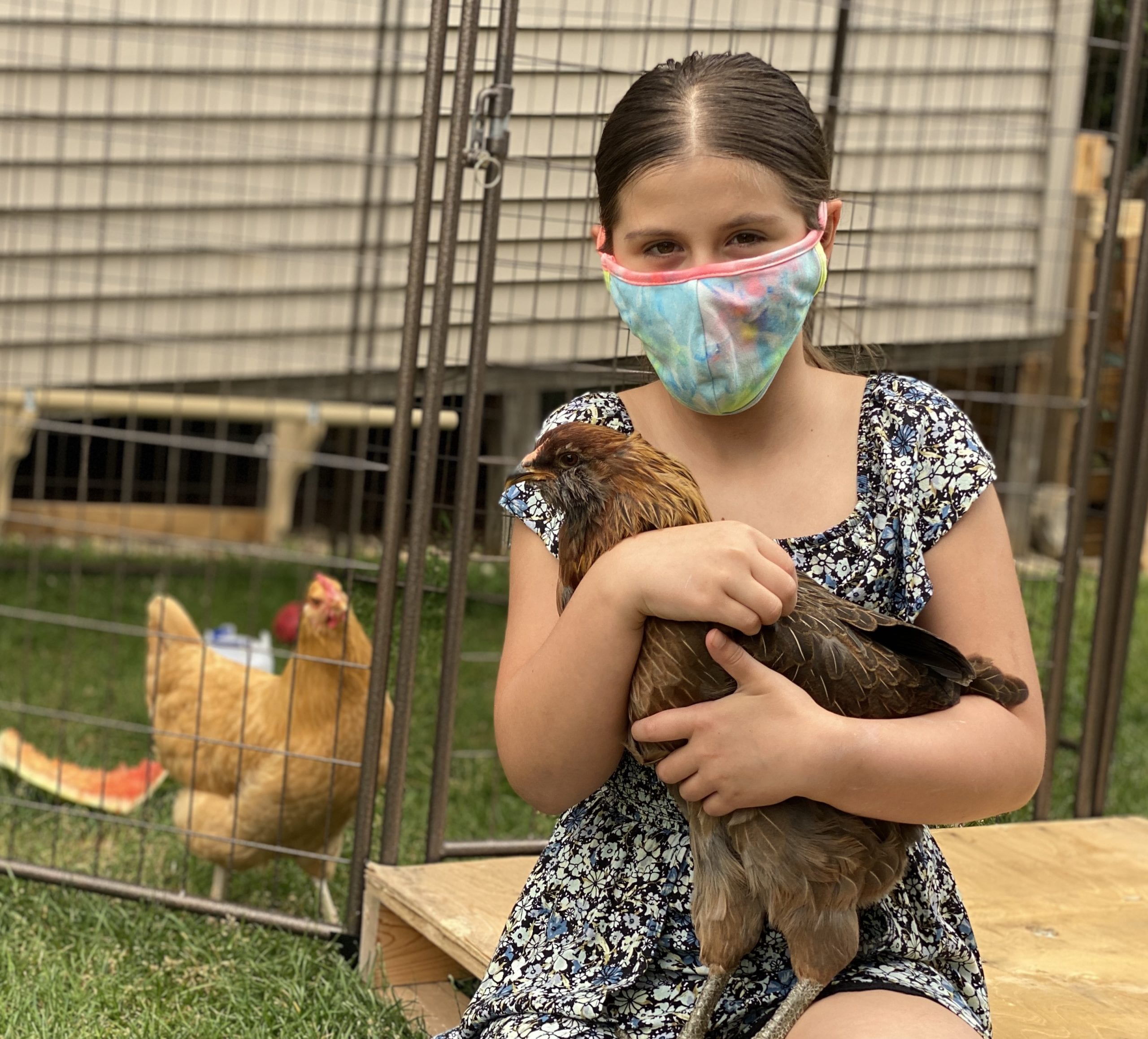College Township Council on Thursday unanimously approved an ordinance to permit the keeping of chickens on residential properties, the culmination of an eight-month effort that began when a 10-year-old and her family fought to keep the girl’s pet hens.
Maeve Elliott began raising her four pet hens — Purple, Banana, Waffles and El — at the start of the COVID-19 pandemic last spring, when her parents, Nathan and Jackie, acquired them to help give their daughter some companionship and structure during a time lockdowns and distancing.
Maeve’s “side-eye queens” have given the family “a wonderful learning experience, lots of laughs and the best fresh eggs that we’ve ever had,” Jackie Elliott said during a public hearing prior to council’s vote on Thursday.
They were under the impression the hens were permitted in the township, until a zoning officer informed them chickens were a violation of an old ordinance that prohibits residents from keeping farm animals on less than 10 acres in a residential zoning district. Pet chickens were considered farm animals in the vaguely worded ordinance, and if they did not get rid of them, they would face fines of up to $500 per day.
With a fee waiver granted by council, the Elliotts appealed to the township zoning hearing board, staying any enforcement action. But believing they were unlikely to win the appeal and unsure how long it would be before a backyard chicken ordinance was enacted, the Elliotts moved to another municipality where hens were already permitted.
Still, Maeve and her family never gave up advocating for College Township residents to be able to keep chickens on their properties.
“I think that people should be able to have chickens because they deserve to be happy with them like I am,” Maeve said during Thursday night’s meeting.
“Chickens may not seem like much, but they mean a lot to me. They are not just food. They are my family. I know others in the township would appreciate having them and it just might make their day.”
The ordinance approved by council permits up to four hens to be kept in single-family residential and village zoning districts and in residential uses within the rural residential and agricultural districts.
Chickens can be kept for personal use only and cannot be used for any commercial purposes. Roosters can only be kept on properties of at least 10 acres and zoned for agricultural uses, areas that are not subject to other restrictions in the backyard chicken ordinance.
The birds cannot be kept on front or side yards and cannot run at large. The ordinance details requirements for coops, runs, property line setbacks and sanitation.
Residents must submit a site plan and apply for $30 zoning permit and $30 license, good for three years at a time, to keep chickens on their properties. The license fee will be waived if a resident shows proof of completing an educational course on the keeping of chickens.
Several residents raised concerns about a provision of the ordinance that allows enforcement officers to come on to a property for investigation. Township administrators said the township code ordinance enforcement chapter authorizes officers to go on to a property and that it is already applied to other ordinances as well. It does not give enforcement officers permission to enter a home and they attempt to make contact with the owner before inspecting a property.
“We’re primarily complaint-driven,” zoning officer Mark Gabrovsek said. “I know our ordinance officer has no intention, nor do I have intention, of spending my days working through people’s yards. Once we have the initial setbacks verified, unless we get complaints we would have no reason to go on the property and investigate. However, it would be very beneficial to us that if there is a complaint that we do have the ability to go during our working hours to take a quick look and say are they compliant or are they not.”
Councilman Paul Takac said the lengthy process for developing the ordinance included “more feedback on this than on any single issue we’ve tackled,” and resulted in a final product that meets the wishes of as many residents as possible.
“I want to assure folks we did our due diligence on every topic that we could think of here,” Takac said. “We sought outside experts. We consulted our peers in other townships. We considered everything from disease transmission, best practices, noise, property values, aesthetics and much more.”
A chicken ordinance has come before council twice in the past decade but was voted down. Council Chair Eric Bernier, who was a member of council when the issue came up in the past, said “this is not the same ordinance,” that was considered previously and that the approved version came from extensive research.
“This was an incredibly deliberate process and it wasn’t a deliberate process because we don’t have anything else to do or staff doesn’t have anything else to do,” Bernier said.
“One of the reasons it was very deliberate is there’s quite a few people in this township that are adamantly opposed to this ordinance or the concept of backyard hens. We were very deliberate because we wanted to try to investigate and analyze all aspects of the opposition using the data and science. So that took us some time.”



